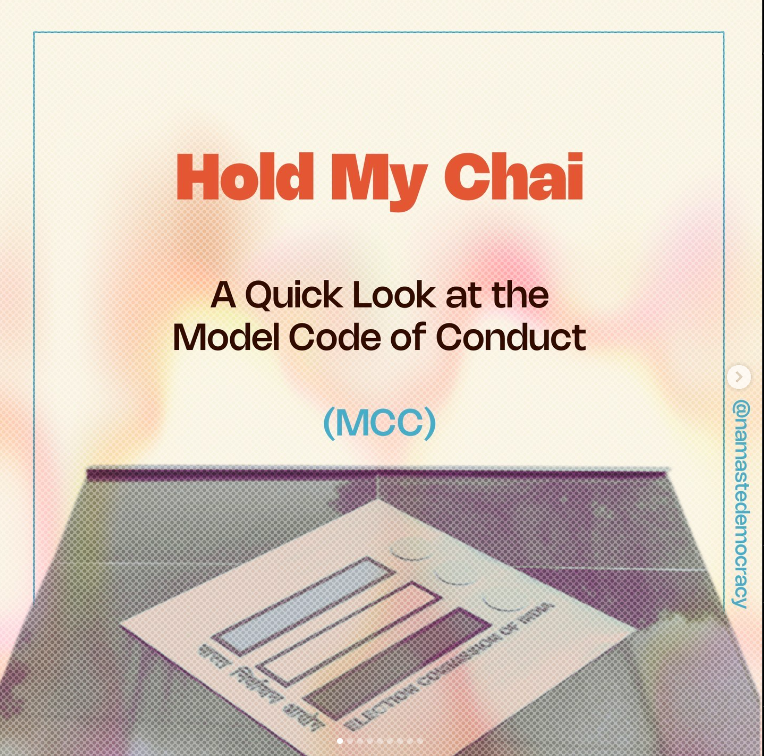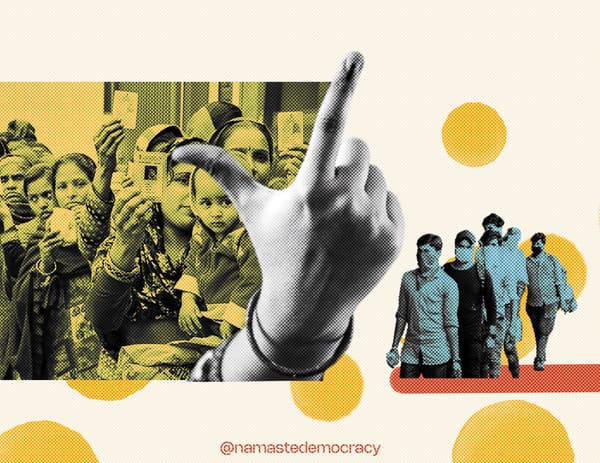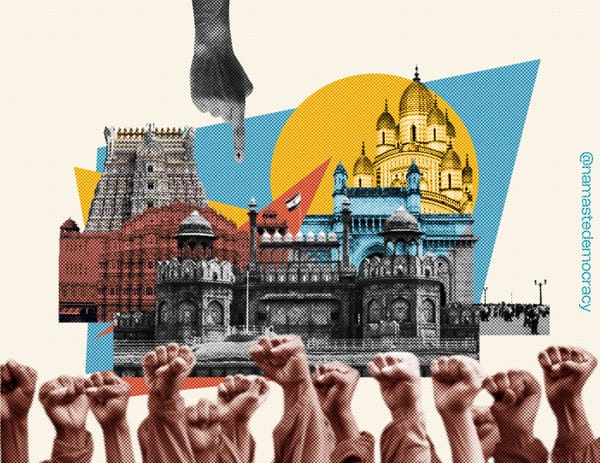Model Code of Conduct: Shaping electoral-landscape of India
The Election Commission of India had announced the dates for the upcoming Lok Sabha elections. With the announcement of these dates for the seven-phase polling, on 16th March 2024, the ECI has issued a Model Code of Conduct.
The Model Code of Conduct (MCC) is a set of norms for the conduct of political parties and candidates laid down by the ECI. It has been set out for the conduct of free, fair, and independent elections throughout the country.
As it contains eight parts now, it mainly focuses on speeches, meetings, processions, polling day, polling booths, supervisors, the ruling party, election manifestos, and overall behavior. Its primary objective is to conduct elections respectfully while maintaining transparency. The MCC provides a level playing field for all the parties and candidates contesting the election. It maintains the integrity and credibility of electoral processes by preventing individuals in positions of power from misusing their authority or exploiting it for personal gain. When MCC came into the force just after the announcement, political parties contesting the election regulate their rallies, speeches, and meetings as per the provisions mentioned in the rule book of the Election Commission of India. There are some dos and don’ts that have to be followed by every political party and the candidates, like:
- Parties and candidates must not do anything that worsens divisions or stirs up hate between different groups based on caste, religion, or language.
- Candidates and political parties should only criticize their opponents based on their policies, past actions, and work, without making personal attacks or unrelated statements.
- Political parties and candidates are not allowed to ask for votes based on caste or religion, and they cannot use places of worship for election campaigning.
- ECI has instructed all parties and candidates to refrain from holding public meetings within 100 meters of the polling booth during the 48 hours close to the voting day. •
- Banners, posters, and flags should not be erected on any individual’s land without their permission.
- Permission is required from the police or local authority for the security arrangements before organizing any meeting in that area.
- Parties in power in states or center should not use official machinery or officers for their propaganda or campaigning and should avoid any misuse of their official capacity for their political gain.
The Model Code of Conduct has evolved from the agreement of all the parties on certain terms they should abide by and respect while contesting elections. Way back in 1960, when MCC was first formulated in Kerala’s assembly elections, since then, it has been evolving to assume its present form. In 1962, the Election Commission of India distributed that code to all the recognized parties of that time for the general elections of Lok Sabha and various state assembly elections, which led to the proper conduct of the election without any disturbances.
ECI did the same in the elections of state assemblies in various states during 1968–69. A document was prepared consisting of a minimum standard code of conduct entitled ‘Role and Responsibilities of Political Parties during Elections: An Appeal to Political Parties for the Observance of a Minimum Code of Conduct during Election Propaganda and Campaign’ and shared among all the parties and candidates. In October 1979, ECI came up with a more comprehensive and revised Model Code of Conduct after concluding the meeting with various political parties and parties in power in various states and the center. It was issued for the 1979 Lok Sabha elections. This year, a new section was added for the conduct of the ‘party in power’. The Model Code of Conduct was reamplified and consolidated into its developed form in 1991.
The Model Code of Conduct (MCC) is not a legally binding document, but it derives its authority from the Representation of People Act, 1951, and the Indian Penal Code. Article 324 of the Indian Constitution empowers the Election Commission of India to issue guidelines and instructions for conducting free and fair elections. Section 8 of the Representation of People Act, 1951, deals with disqualification on conviction for certain offenses. Part 7 of the same act deals with corrupt practices and electoral offenses. In violation of the Model Code of Conduct, the Election Commission of India has the authority to cancel voting in that constituency.
ECI closely monitors the behavior of parties and candidates, and on violation, it may lead to the suspension or withdrawal of that party’s recognition under paragraph 16A of the Election Symbols (Reservation and Allotment) 1968. Candidates, if found guilty of a violation, may be imprisoned at the direction of ECI. Even the Supreme Court has reiterated that the Model Code of Conduct will be in effect as soon as the Election Commission of India announces it through a press release in the Union of India vs. Harbans Sigh Jalal and Others case of 2001.
How to report violation of Model Code of Conduct?
cVIGIL, a mobile application available at the Google Play Store and Apple Play Store developed by the Election Commission of India. Citizens can report violations of the Model Code of Conduct through the cVIGIL app. It uses GPS to track the location of the violation and Allows users to capture the live incidents only. cVIGIL tracks the progress of the complaint. Also, it has the feature to report the case of MCC violation anonymously.



